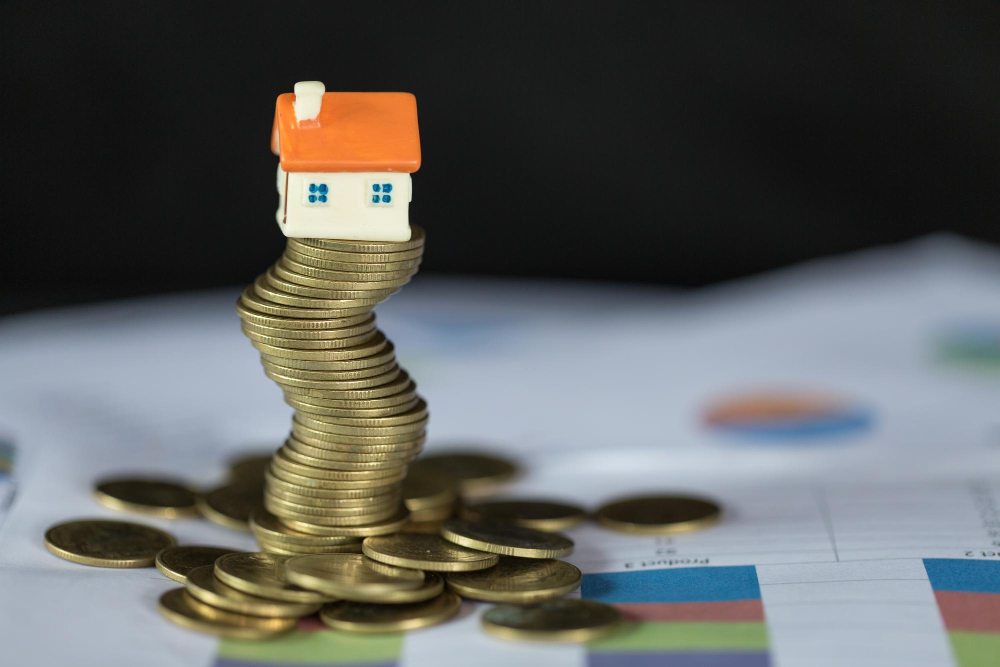Home equity can often feel like a confusing or abstract concept, but understanding it is one of the most important aspects of owning a property. Whether you’re thinking about taking out a loan, selling your home, or simply keeping track of your financial health, knowing how much equity you have is key.
Here’s a simple guide to help you understand home equity, how to calculate it, and why it matters.
What Is Home Equity?
Home equity is the portion of your home that you truly “own.” It’s the difference between the current market value of your home and what you still owe on any loans or mortgages tied to it.
Think about your home like a pie. If your home is worth $400,000 and you still owe $150,000 on your mortgage, you own $250,000 of the pie. That $250,000 is your home equity.
Equity can grow over time as you make mortgage payments and as your property increases in value. It’s essentially a financial asset—a form of savings that you can use to your advantage.
Why Does Home Equity Matter?
Understanding how much equity you have in your home can open doors to several financial opportunities:
- Access to Borrowing Options: Many lenders offer loans or lines of credit based on the equity in your home. These could be useful for home renovations, paying off high-interest debt, or funding significant expenses like college tuition.
- Profits from Selling: When you sell your home, your equity is part of the sale proceeds you get to pocket after covering any remaining loan balance and fees.
- Emergency Resource: Home equity can serve as a financial safety net in times of crisis if you need to tap into it through refinancing or a home equity loan.
- Increase in Net Worth: Your home equity contributes to your overall financial portfolio and net worth.
How to Calculate Your Home Equity
To figure out how much equity you have, follow these basic steps:
1. Determine Your Home’s Current Market Value
The market value is how much your home would sell for today. You can estimate this by:
- Checking online real estate platforms for similar local listings
- Asking a real estate agent for a Comparative Market Analysis (CMA)
- Hiring a professional appraiser for an accurate valuation
2. Subtract Your Mortgage Balance
Take the remaining balance on your mortgage and subtract it from your home’s current market value. You can find your mortgage balance on your monthly statement or by contacting your lender.
For example:
- Market Value of Your Home = $400,000
- Mortgage Balance = $150,000
- Home Equity = $400,000 – $150,000 = $250,000
3. Factor in Other Liens or Loans
If you have any other loans secured against your home, such as a home equity loan or line of credit (HELOC), subtract those amounts as well to get your total equity.
How to Build More Equity in Your Home
If you’re looking to grow your home equity, here are a few strategies:
- Make Extra Mortgage Payments: Paying down your loan faster reduces the outstanding balance and increases your ownership stake.
- Renovate Your Home: Improvements that increase your home’s value, like updating your kitchen or adding a bathroom, can boost your equity.
- Wait for Market Appreciation: Property values usually rise over time, which can increase your home’s market value and equity.
- Refinance for a Shorter Loan Term: Switching to a 15-year mortgage may have higher monthly payments, but you’ll build equity faster than with a 30-year loan.
When Should You Tap Into Your Equity?
There are specific instances when it might make sense to use your home equity:
- Renovations: Improving your home can add value, which contributes to building more equity over time.
- Debt Consolidation: Use your equity to pay off high-interest debt, like credit cards, to save money in the long run.
- Major Life Expenses: Education costs, a wedding, or starting a business are common reasons to access equity.
- Emergencies: As a last resort, home equity can provide financial relief in challenging situations.
Be Cautious When Using Home Equity
While home equity is a valuable resource, tapping into it does come with risks. You’re borrowing against your property, which means failure to repay could result in foreclosure. Consider consulting a financial advisor to weigh the risks and benefits carefully.
Final Thoughts
Home equity is more than just a number—it’s a powerful financial tool. By understanding how it works, you can make informed decisions that benefit your long-term financial health.
Want help calculating your home equity or advice on how to use it? Call Kim Shaw at (928) 710-9148.


 Facebook
Facebook
 X
X
 Pinterest
Pinterest
 Copy Link
Copy Link


